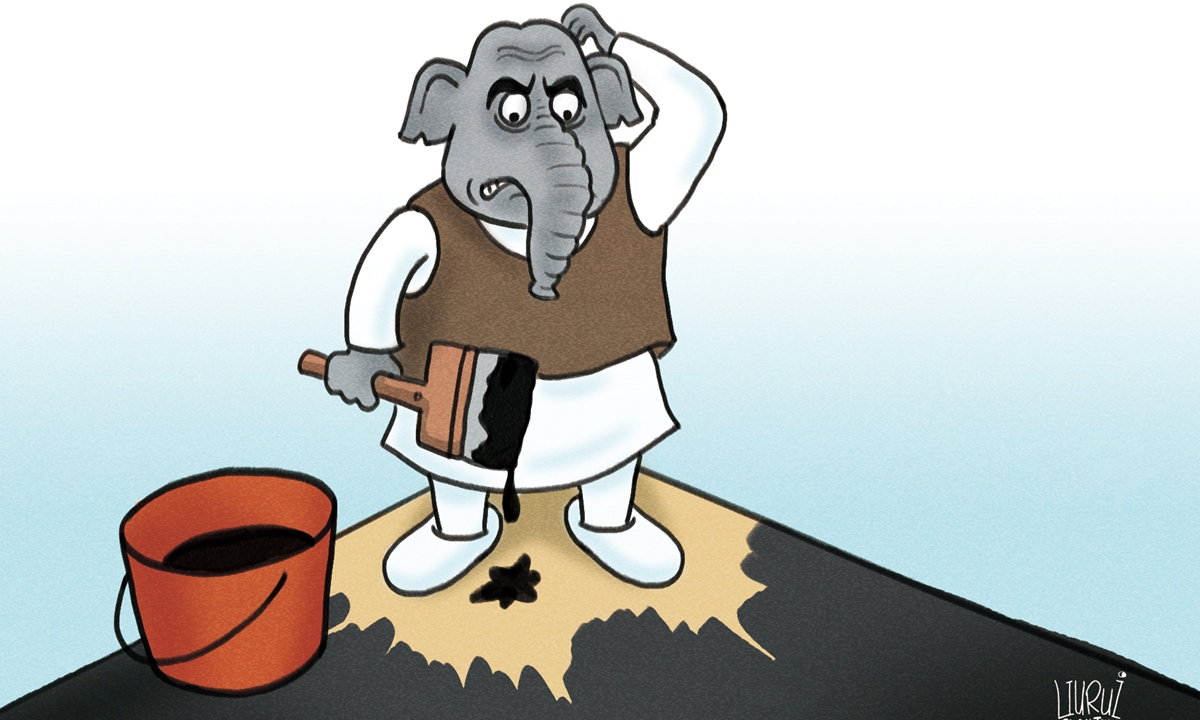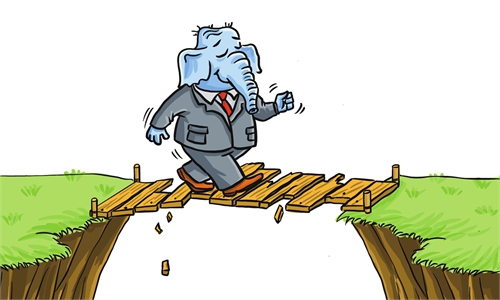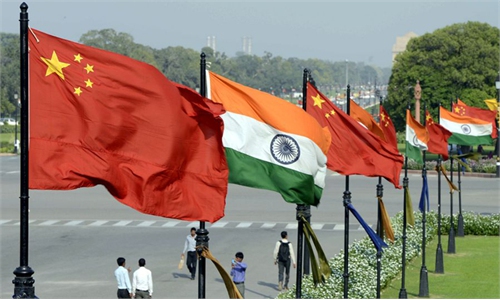Will China-India relations see a turnaround in 2021?

What next for India? Illustration: Liu Rui/GT
Although talks between New Delhi and Beijing have yet to make headway to end a border standoff, the Indian military itself wants to end the border standoff as soon as possible.
After all, the current standoff is draining India's domestic resources and army's energy. The extreme geographical and natural conditions make soldiers deployed at border suffer horrible weather.
Some analysts concur that India's public opinion about the border issue will be replaced with vaccine priorities in 2021. However, Indian society's overall negative attitude toward China will continue to intensify as a result of continuously malicious hyping up of the "China threat" theory by certain Indian media outlets and elites. Public anger against China has been stirred up by the Modi administration. Although such sentiment will recede to some extent in the coming year, it will be hard to dispel completely, especially as border issues remain unresolved.
The hostile mindset of some Indian politicians and scholars towards China is traceable. Wariness toward China's fast development may sadly die hard there - particularly as local media outlets there are amplifying the tensions.
The Indian Air Force chief RKS Bhadauria said on December 29, 2020 that "the important question for all of us is any serious India-China conflict is not good for China on the global front." But it is not in India's national interest to continue intensifying border tensions with China. India's top priority should be to control and avoid the further spread of the epidemic. This will better promote economic recovery first and foremost.
For the Modi administration, disputes between the government and the people over domestic issues, including the farm bills and land distribution, are the most important matters to address. In this context, India's key interests should focus on domestic affairs rather than inflaming border tensions.
That being said, the US-India relationship significantly strengthened during the Trump administration. However, the incoming Biden administration's policy toward India may leave doubt with both Modi government and the Indian public. The strengthening of US-India relations has always been an element that may influence China-India relations. But China-India relationship is largely dependent on how they will address their structural problems.
A new set of questions are emerging in this light. Will Biden continue to support India? Will his focus in the Indo-Pacific region remain on India? Will the Indo-Pacific strategy continue to be Washington's main policy tool in the region? These are all questions for India to consider and confirm.
Meanwhile, the Biden administration could take religious and human rights issues with India. Washington does not want to see Beijing become stronger. Nor does it want to see growing Hinduism under the Modi government. In addition, the adjustment of US policies in Pakistan and Afghanistan will also affect the development of US-India relations.
India's constant assertiveness is not conducive to solving the border issue. It is noteworthy that India's China policy is becoming confusing and self-contradicting. While constantly flexing its muscles, India also wants to actively and peacefully solve the border issue. What India says on diplomatic occasions contradicts with its actions, disturbing the process of peacefully addressing the border standoff.
Compared with six months ago, India is now more outwardly strong but inwardly weak. It demonstrates ambitions to become a world power without support of mature policies. Under the current international order, it is more important for China and India to work toward a peaceful settlement of their frictions. However, it will be difficult for the bilateral ties to recover in short term before the latest border standoff is fully addressed.
In this light, it is foreseeable that China-India relations will stay at a comparatively low level for a long period of time into the year 2021. India's moves have harmed the Indo-Pacific region overall and particularly with regional post-pandemic era recovery.
The author is director of the research department at the National Strategy Institute at Tsinghua University. opinion@globaltimes.com.cn



